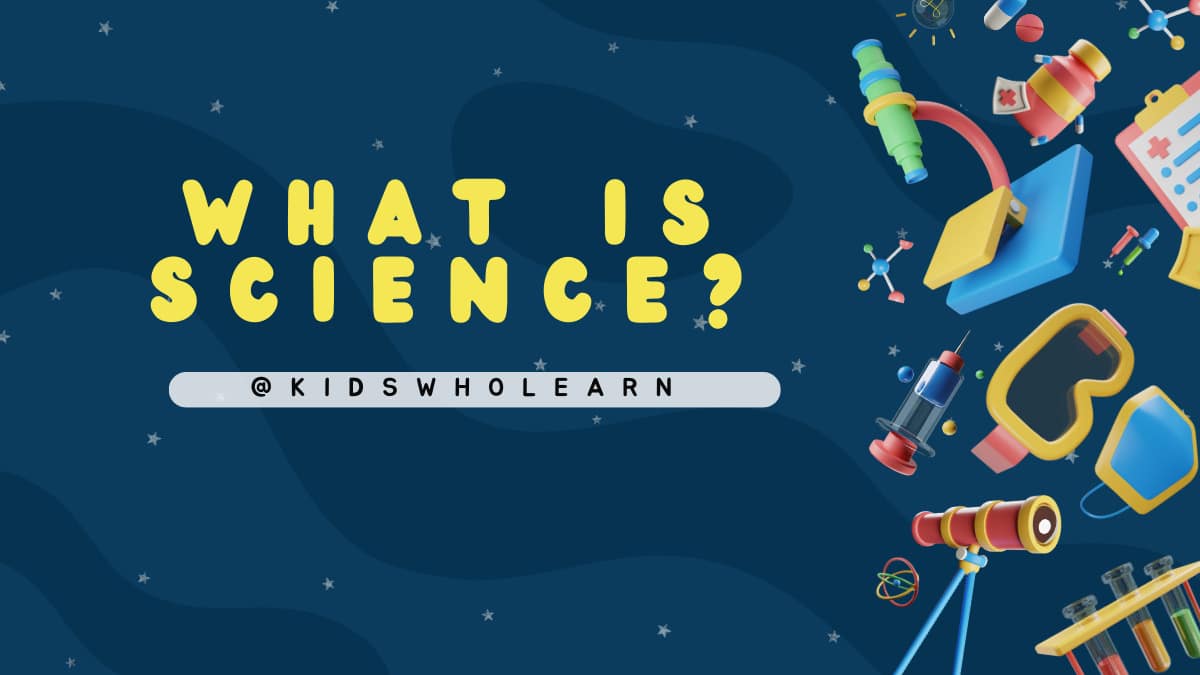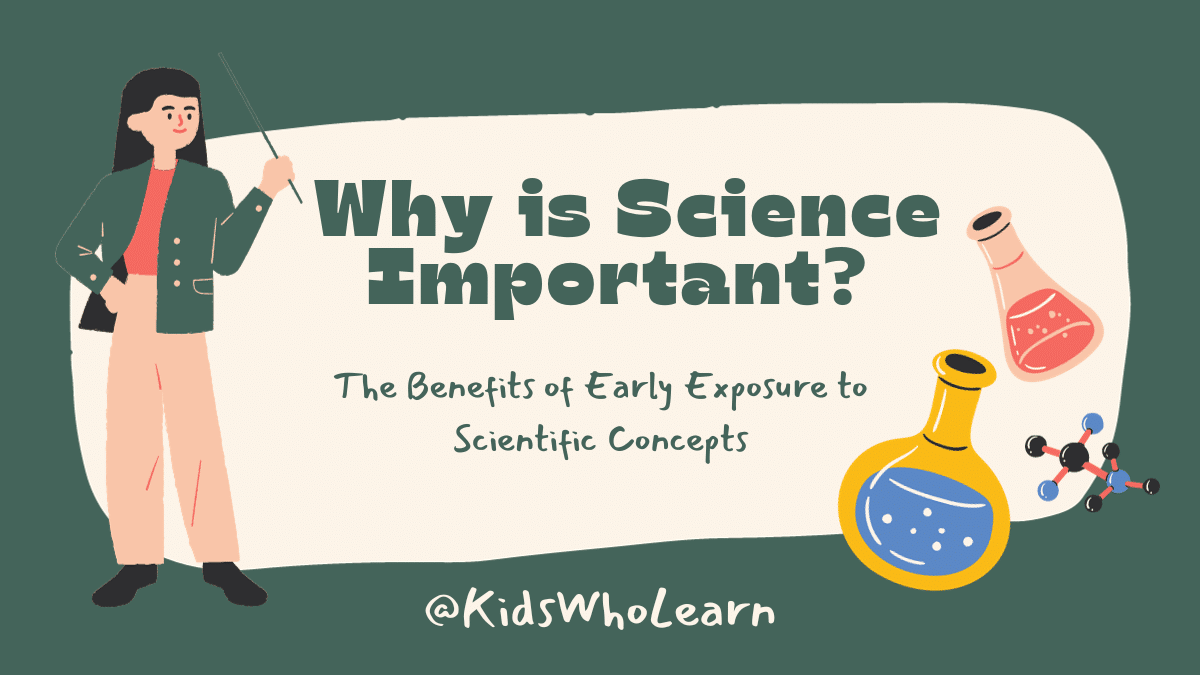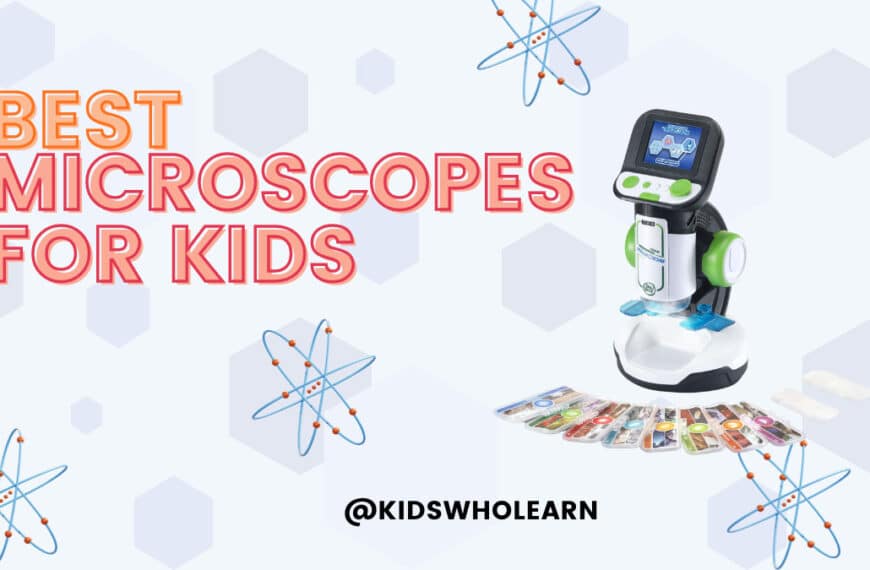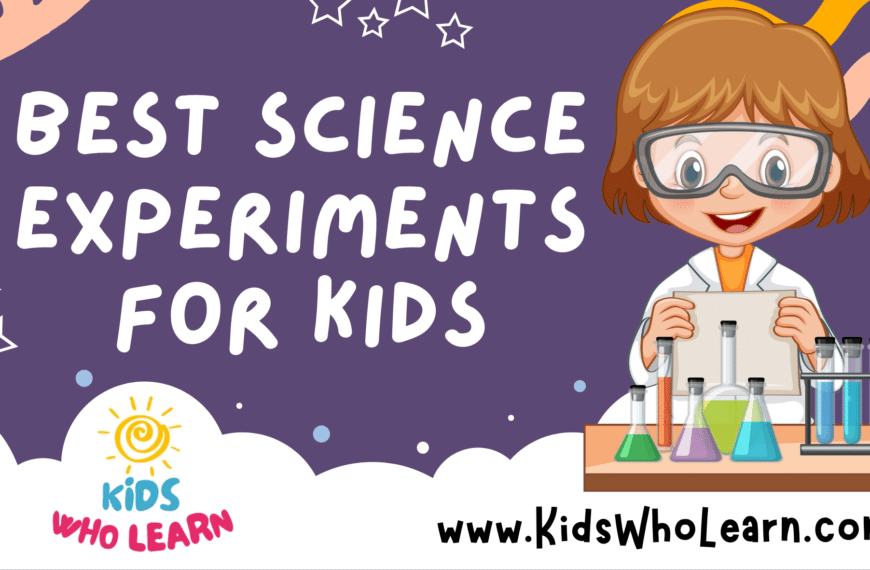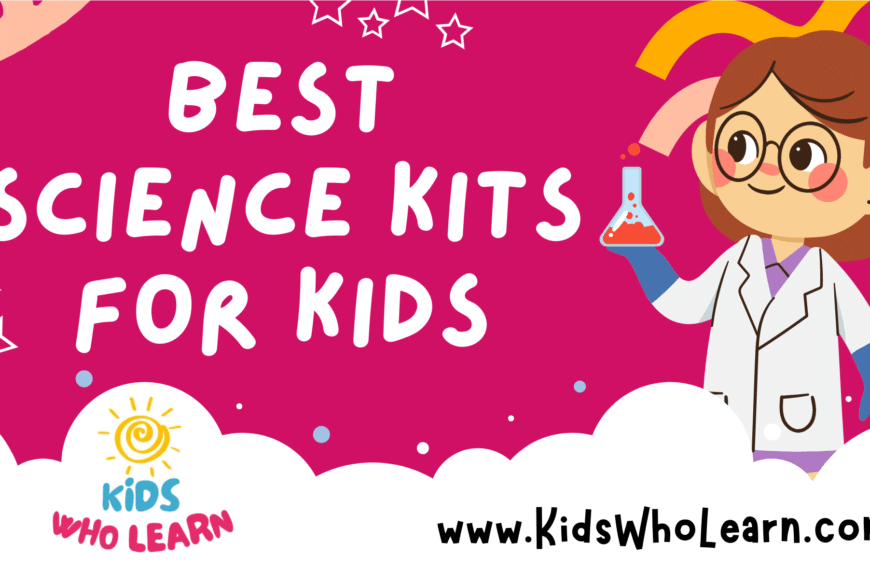Science is a fascinating subject that offers endless opportunities for exploration and discovery. Your child may have wondered what science is and how it works. Simply put, science is the study of the natural world and everything in it. It involves observing, asking questions, making predictions, and testing those predictions through experimentation.
Science is all around us, from the plants and animals in our backyard to the stars in the sky. It helps us understand the world we live in and find solutions to problems. Science is a way of thinking and a process of discovery that can be used to answer questions and solve problems in many different fields, from medicine to engineering to environmental science.
Learning about science can be fun and exciting, as you get to explore and discover new things. By understanding the basics of science, you can start to ask questions and make observations about the world around you. So, what is science for kids? It’s a way to explore and understand the world, and it’s a whole lot of fun!
Understanding Science
What is Science?
Science is a way of learning about the world around us. It involves asking questions, making observations, and conducting experiments to find answers. Scientists use the scientific method to help them understand how things work. The scientific method involves making observations, asking questions, forming hypotheses, testing those hypotheses, and drawing conclusions based on the results.
Science covers a wide range of subjects, including biology, chemistry, physics, and earth science. Each of these subjects involves studying different aspects of the natural world, from the smallest particles to the largest galaxies.
Why is Science Important?
Science is important because it helps us understand the world around us. It allows us to answer questions about how things work and why they behave the way they do. Science has led to many important discoveries and advancements, from the development of vaccines to the exploration of space.
Science also helps us solve problems. It allows us to develop new technologies and find solutions to challenges facing our planet, such as climate change and pollution. By studying science, we can make informed decisions about important issues that affect our lives and the world we live in.
In summary, science is a way of learning about the world through observation, experimentation, and analysis. It is important because it helps us understand the world around us and find solutions to important problems.
Branches of Science
Science is a vast subject that is divided into three main branches: Physical Sciences, Life Sciences, and Earth Sciences. Each branch focuses on different aspects of the world around us.
Physical Sciences
Physical Sciences deal with the study of non-living things. This branch of science includes subjects like Physics, Chemistry, and Astronomy. Physics deals with the study of matter, energy, and their interactions. Chemistry deals with the study of the properties, composition, and behavior of matter. Astronomy deals with the study of celestial objects like stars, planets, and galaxies.
Life Sciences
Life Sciences deal with the study of living things. This branch of science includes subjects like Biology, Zoology, and Botany. Biology deals with the study of living organisms, including their structure, function, and evolution. Zoology deals with the study of animals, while Botany deals with the study of plants.
Earth Sciences
Earth Sciences deal with the study of the Earth and its processes. This branch of science includes subjects like Geology, Meteorology, and Oceanography. Geology deals with the study of the Earth’s structure, composition, and history. Meteorology deals with the study of weather and climate. Oceanography deals with the study of the oceans, including their physical and biological properties.
In conclusion, understanding the different branches of science can help you appreciate the complexity and diversity of the world we live in. By studying these different branches, you can gain a deeper understanding of the world around you and how it works.
Science in Everyday Life
Science is not something that only happens in a laboratory or classroom. Science is all around you, in everything you do and see. Here are a few examples of how science is a part of your everyday life:
Food Science
Have you ever wondered why bread rises or why fruit turns brown? These are all examples of food science. Food science helps us understand how to store and prepare food safely, and how to make it taste good. Scientists use chemistry and biology to study food and make sure it is safe to eat.
Technology
Technology is everywhere in our lives, from the phones we use to the cars we drive. Technology is the application of science to solve problems and make our lives easier. For example, engineers use science to design and build bridges, buildings, and other structures.
Weather
Weather is a part of our everyday lives, and scientists study it to help us understand and predict it. Meteorologists use science to study the atmosphere and predict weather patterns. They use tools like radar and satellites to track storms and other weather events.
Health
Science is also important for our health. Doctors and nurses use science to diagnose and treat illnesses. Scientists study the human body to understand how it works and how to keep it healthy. They also develop new medicines and treatments to help people who are sick.
In conclusion, science is all around us, in everything we do and see. From the food we eat to the technology we use, science helps us understand and improve our world.
Fun Science Experiments
Science can be fun and exciting, especially when you get to do experiments! Here are some simple experiments you can try at home or use for your next science fair project.
Simple Experiments at Home
- Baking Soda and Vinegar Volcano – This classic experiment is always a hit with kids. Mix baking soda and vinegar together and watch as it erupts like a volcano. You can add food coloring to make it more colorful.
- Walking Water – This experiment is easy and visually stunning. Fill three clear cups with water and add food coloring to two of them. Then, place a paper towel between the cups and watch as the water “walks” up the paper towel and into the empty cup.
- Invisible Ink – Use lemon juice to write secret messages on paper. When the paper dries, the message will be invisible. To reveal the message, hold the paper over a heat source, like a light bulb.
Science Fair Project Ideas
- Which Fruit Conducts Electricity the Best? – Use a circuit tester to test which fruit conducts electricity the best. Cut slices of different fruits and place them between the circuit tester’s probes to see which fruit lights up the bulb the brightest.
- How Does Temperature Affect the Rate of Plant Growth? – Plant two of the same type of plant in separate pots. Place one pot in a warm area and the other in a cool area. Measure and record the growth of each plant over time to see how temperature affects growth.
- Which Brand of Popcorn Pops the Most Kernels? – Pop kernels from different brands of popcorn and count how many kernels pop. Record your results and see which brand pops the most kernels.
Science is all around us and experimenting is a great way to learn more about it. Have fun and be curious!
Famous Scientists and Their Contributions
Learning about famous scientists and their contributions can help you understand how science has evolved over time. Here are a few famous scientists and their contributions to science:
Albert Einstein
Albert Einstein was a physicist who is best known for his theory of relativity. This theory explains how time and space are related and how gravity works. Einstein also made significant contributions to the development of the atomic bomb during World War II.
Marie Curie
Marie Curie was a physicist and chemist who is best known for her work on radioactivity. She discovered two new elements, polonium and radium, and was the first woman to win a Nobel Prize in Physics.
Charles Darwin
Charles Darwin was a naturalist who is best known for his theory of evolution. He proposed that species evolve over time through a process called natural selection. This theory has had a significant impact on the field of biology.
Isaac Newton
Isaac Newton was a mathematician and physicist who is best known for his laws of motion and universal gravitation. His laws of motion explain how objects move and interact with each other, while his law of universal gravitation explains how gravity works.
Learning about these famous scientists and their contributions can help you appreciate the importance of science in our world today.
Conclusion
Science is all around us, and it helps us understand the world we live in. By asking questions, making observations, and conducting experiments, scientists learn new things every day. As a kid, you can also be a scientist by exploring the world around you and asking questions.
Remember, science is not just about memorizing facts. It’s about understanding how things work and discovering new things. You can use science to solve problems, create new things, and make the world a better place.
Here are some important things to keep in mind when learning about science:
- Science is based on evidence, not opinions or beliefs.
- Scientists use the scientific method to ask questions, make observations, and conduct experiments.
- Science is always changing as new discoveries are made.
- Science can be used to solve problems and make the world a better place.
So go out there and explore the world around you! Who knows, you might just discover something new and exciting.

